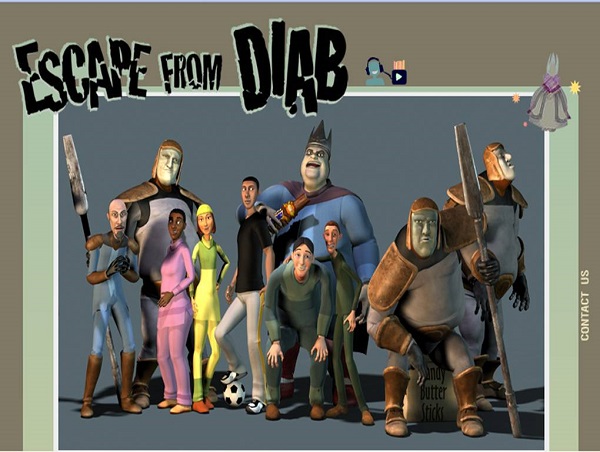As childhood obesity figures rise, the United States government has invested millions of dollars into games that can help to fight it.
Childhood obesity is a huge problem affecting the world’s young population. According to statistics, childhood obesity has more than quadrupled in the last 30 years.
The problem is worse still in America with the United States Centre for Disease Control and Prevention stating that “The percentage of children aged 6–11 years in the United States who were obese increased from 7% in 1980 to nearly 18% in 2012.” And, “in 2012, more than one third of children and adolescents were overweight or obese.”
So obviously, in order to get adolescents a little healthier, work needs to be done. One possible solution? Video games; and now the United States government has invested millions in just that.
The National Institutes of Health has forked over over $10 million to Archimage, Inc to create two obesity fighting games. These include Escape from Diab which received $9,091,409 in funding.
As explained by Archimage,
“The story centers around five children who must get healthy enough to escape the evil King Etes,
Deejay, an athletic inner city youth, accidentally tumbles into an abandoned building and through its rotting floor. When he awakes, he finds himself in Diab, a nightmare city where people eat nothing but junk food.”
He finds new friends and agrees to help them prepare for their escape to the legendary Golden City, using everything he has learned about nutrition and exercise from his track coach,” it says. “Deejay’s arrival has been noted by the despotic King Etes who will stop at nothing to capture him.”
A trailer further explains that “This is the town of Diab. You can eat all the junk food you want. In Diab, you never have to exercise Sound like a dream? It’s not.”
While the idea of fighting childhood obesity is a good – and an extremely important one – games like Escape from Diab arguably are not the way to do it.
Games like Escape from Diab don’t help promote healthy eating, they instead promote anti-obesity thinking. For example, this game makes it clear that obese people are something to be ‘escaped from’ rather than y’know, considered as actual people who should be treated all the same, weight category or not.
Furthermore, video games are not a solid way of fighting childhood obesity. The NIH clearly fails to understand that people aren’t just obese because they’ve eaten the wrong things but it’s because of many factors – including lack of access to healthy food or being unable to afford non-junk food options – that their weight is how it is.
Rather than spending millions of taxpayer money on a game that ridicules, ostracises and in many ways makes fun of obese children, maybe that money could be spent on healthy foods for the people they’re trying to reach. That’s more effective than making young people feel bad.
Source: Free Beacon
Be social! Follow Walyou on Facebook and Twitter, and read more related stories, 7 Must Have Video Games This Christmas, 11 Best Video Games Coming Out in 2015











